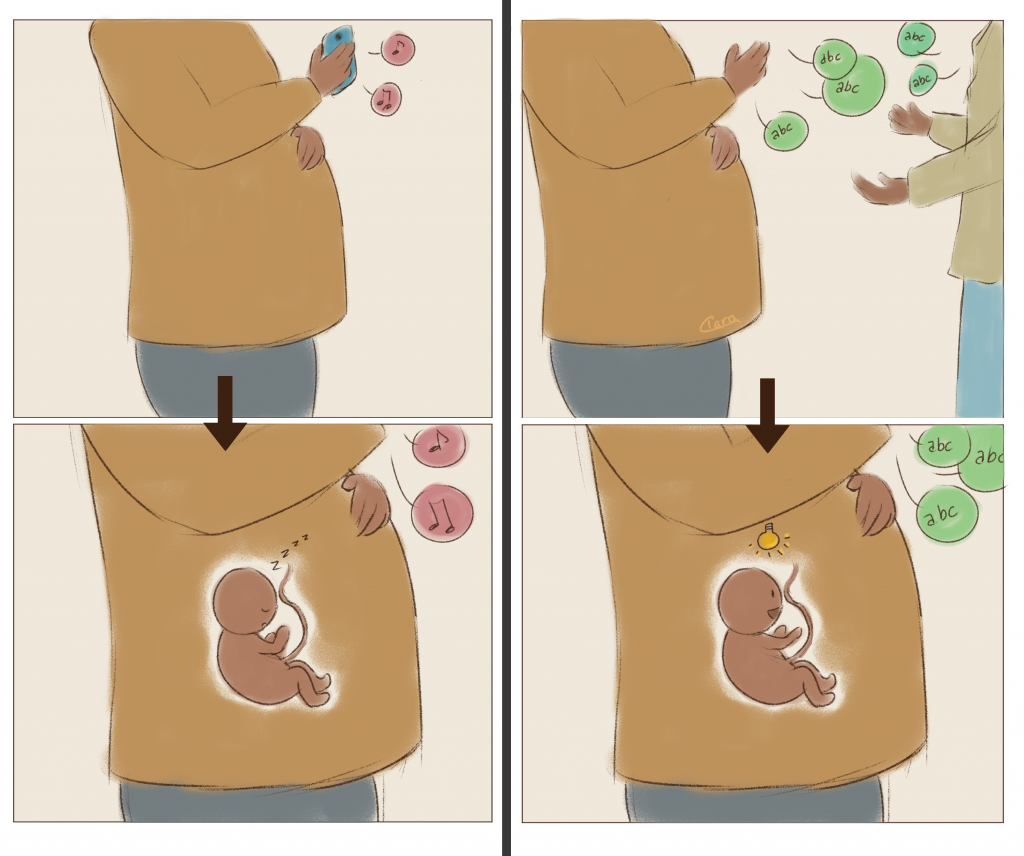Have you ever seen ads for apps that supposedly help babies learn language in the womb?

Caregivers can feel a lot of pressure to give their child a head start learning language, or any skill. With a whole market dedicated to ‘the earliest educational experiences’, it can seem enticing to start even before a baby is born: in the womb. That would be a whole 9 months of bonus learning! Sellers often claim that playing their ‘educational’ media, like vocabulary tapes or special music, close to the womb can help a child learn language, but is this even possible?
Actually, there is something a lot cheaper you can invest in to help your child get familiar with language in the womb. But let us start by imagining what it is like being in the womb. We would be submerged in liquid, like being under water in a pool. You may remember what it sounds like to listen to people talking while under water: sounds are distorted, and at best you may catch the general rhythm of the sentences. In the womb, the sounds that are heard the clearest (but again through liquid!) are from the mother’s voice. Voices of other caregivers, or tapes, even if they are close to the womb are much less clear.
Another thing to remember is that, unlike adults, babies in the womb are still developing organs. A baby’s hearing is less precise than it is after birth, because the ear is just developing. It is only later in the pregnancy (in the latter part of the second trimester) that the ear starts being ready to hear some sounds.
Instead of spending money on tapes and cd’s, there is a homemade way to introduce a child to language in the womb: a mom can just talk naturally. There is no need to spend hours talking, of course. The main part of language learning will happen after the child is born! Just with mom’s speech, a child can become familiar with common sounds in their native language (or languages) and the rhythm of their native language (or languages). Now that’s a lot cheaper (and effective)!
The scientific sources of our comic::
